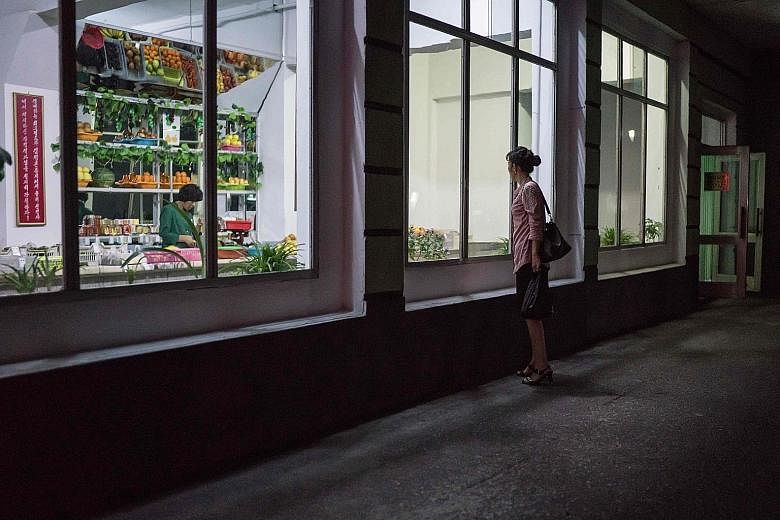SEOUL • North Korea recorded its worst harvest for more than a decade last year, the United Nations said yesterday, as natural disasters combined with its lack of arable land and inefficient agriculture hit production.
The isolated country, which is under several sets of sanctions over its nuclear weapon and ballistic missile programmes, has long struggled to feed itself and suffers chronic food shortages.
But last year's harvest was just 4.95 million tonnes, the UN said in its needs and priorities assessment for this year, down by 500,000 tonnes. It was "the lowest production in more than a decade", said the UN's resident coordinator in North Korea Tapan Mishra, in a statement. "This has resulted in a significant food gap."
As a result, 10.9 million people in the country needed humanitarian assistance - 600,000 more than last year - with a potential for increased malnutrition and illness. This is equivalent to 43 per cent of the population.
But while the number of people needing help rose, the UN has had to cut its target for people to help - from 6 million to 3.8 million - as it prioritises those most in need.
Funding has fallen far short of what the UN says it needs. Only 24 per cent of last year's appeal was met, with Mr Mishra describing it as "one of the lowest funded humanitarian plans in the world".
Several agencies had been forced to scale back their programmes and some faced closing projects, he said, appealing to donors to "not let political considerations get in the way of addressing humanitarian need".
-
CHRONIC FOOD SHORTAGES
1.4m tonnes
Shortfall of food North Korea is facing this year.
10.9m
Number of North Koreans needing humanitarian assistance - 600,000 more than last year.
3.8m
Number of people the United Nations has targeted to help - down from 6 million.
He added that international sanctions on the North had created unintended delays and challenges to humanitarian programmes, even though these are exempt under UN Security Council resolutions.
The impoverished North has been frequently condemned by the international community for decades of prioritising the military and its nuclear weapons programme over adequately providing for its people - an imbalance that some critics say the UN's aid programme encourages.
The country industrialised rapidly following the end of the Korean War and was, for a time, wealthier than the South.
Funding from Moscow papered over the effects of chronic economic mismanagement, but that came to an end with the collapse of the Soviet Union, which was followed by a crippling famine.
That episode - known as the Arduous March, when hundreds of thousands of people died - is in the past, but North Korea does not have access to the latest agricultural technology or fertilisers and its yields are well below global averages.
Last month, Pyongyang told the UN it was facing a shortfall of 1.4 million tonnes of food this year.

